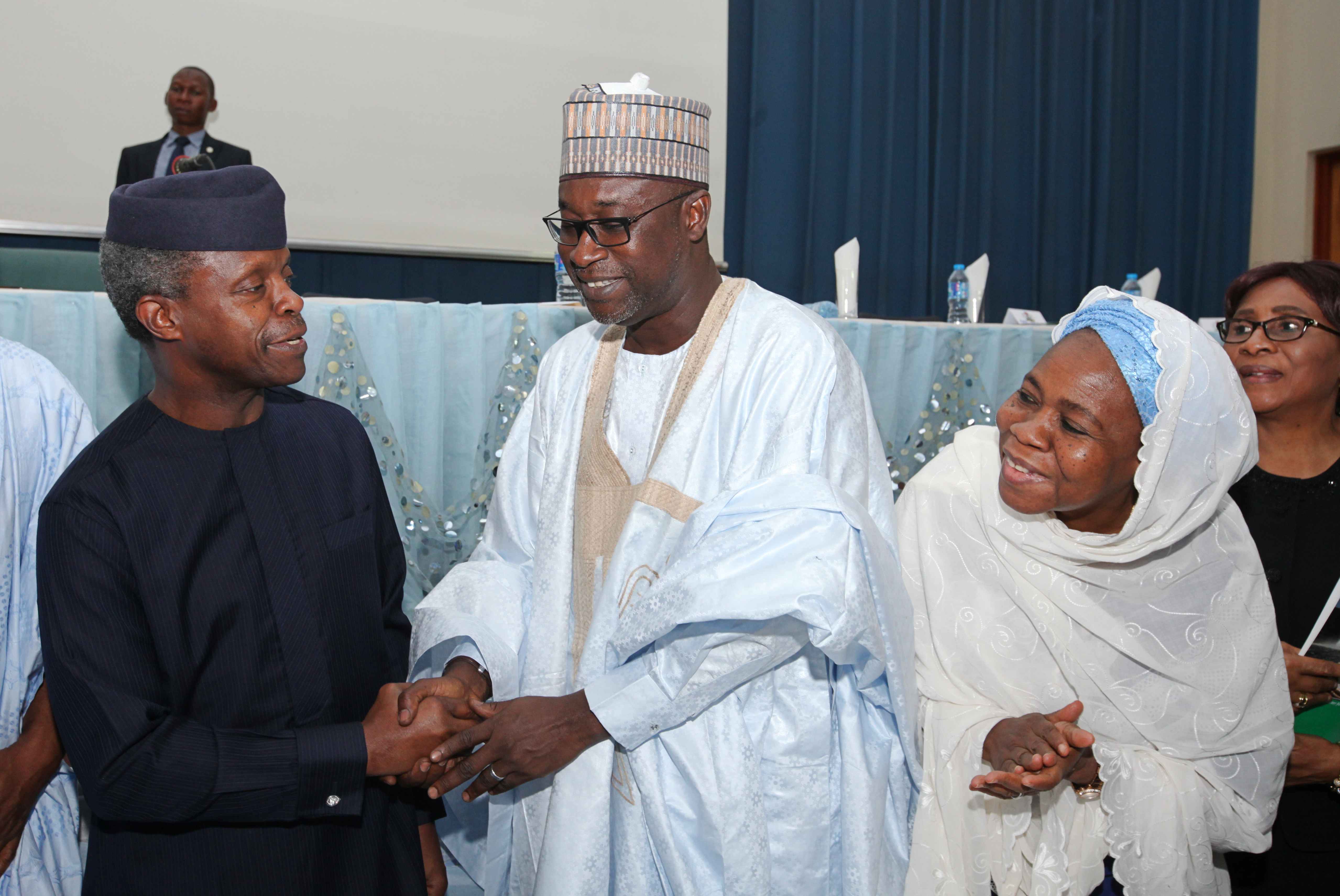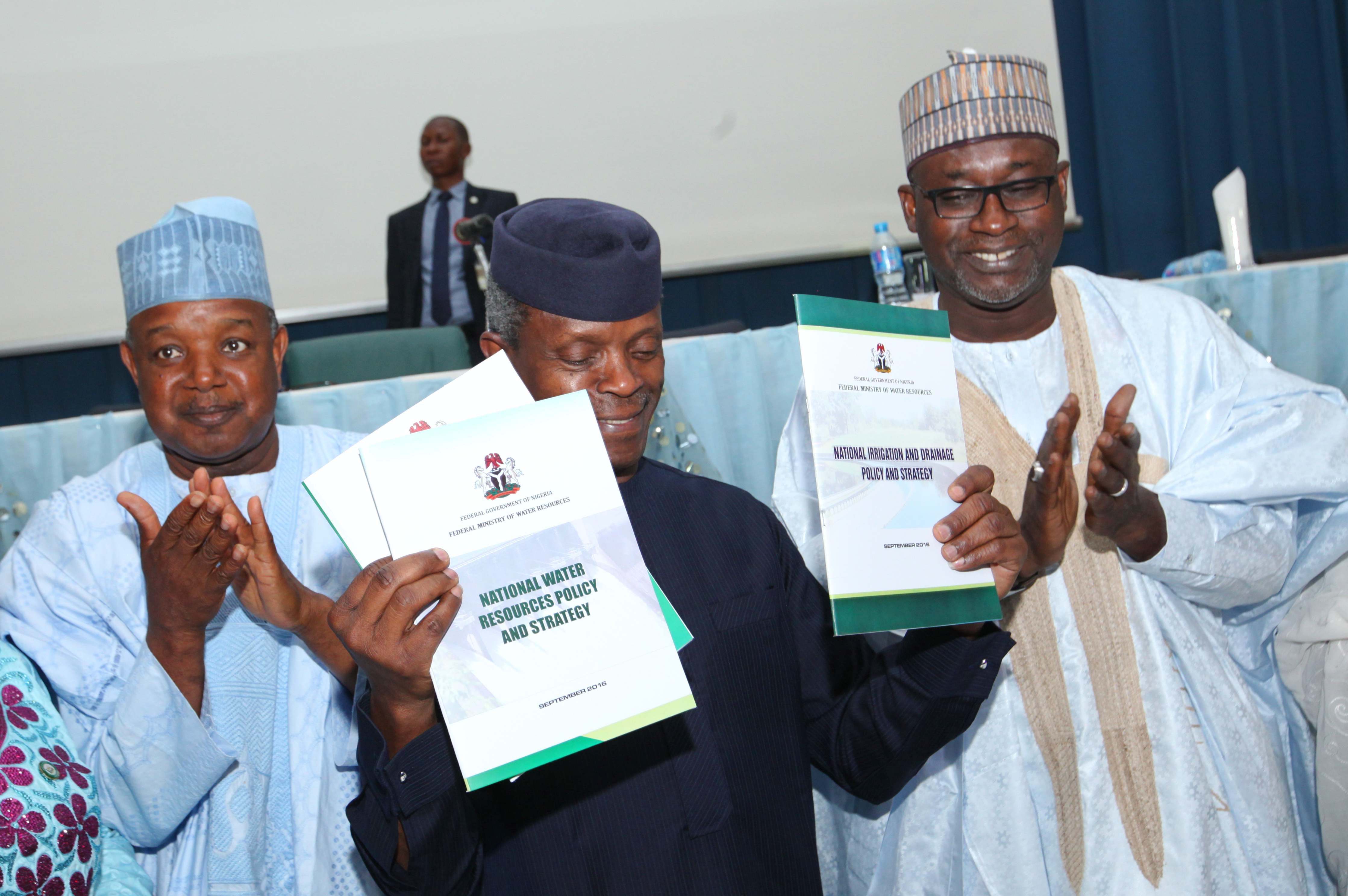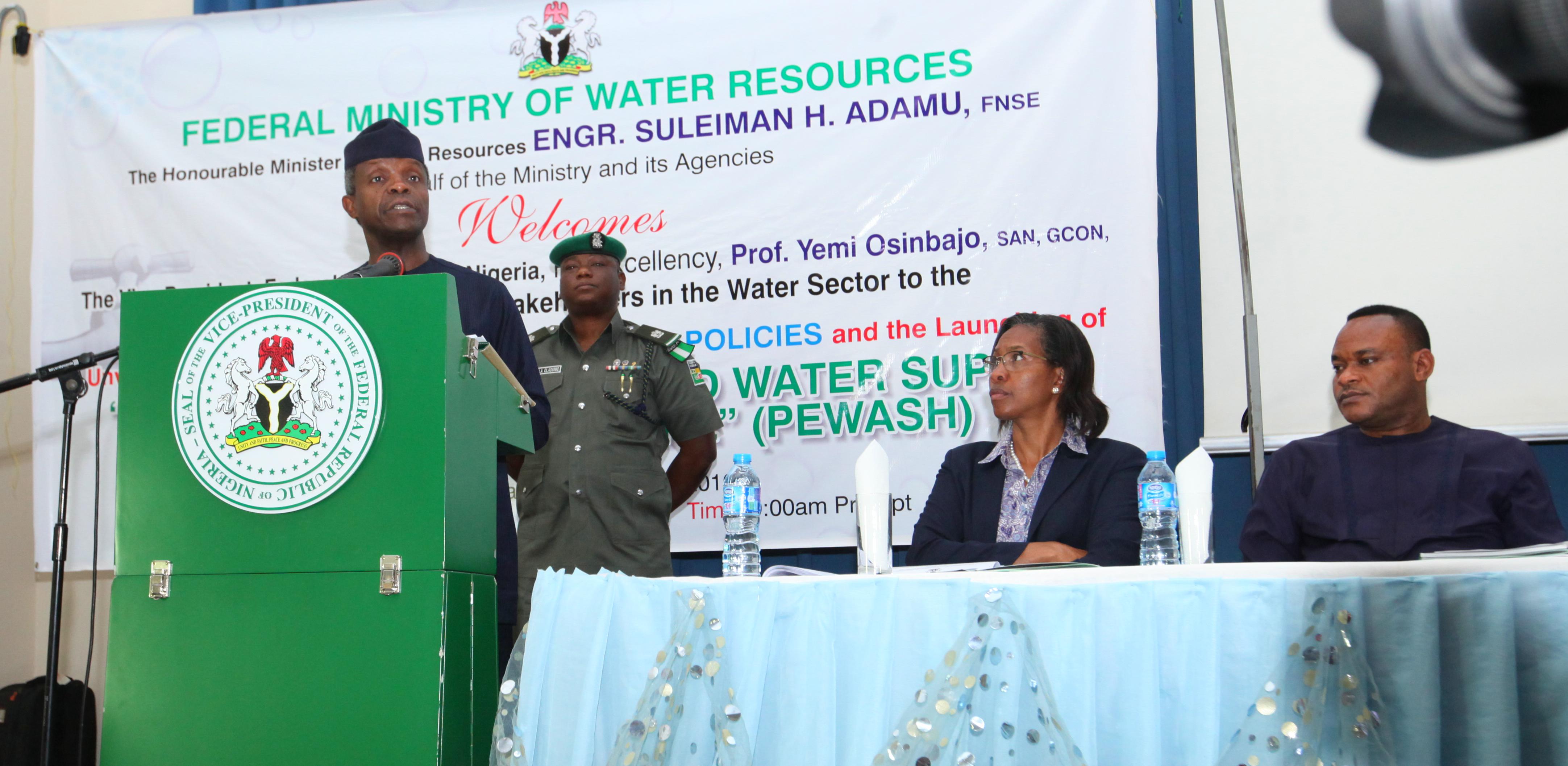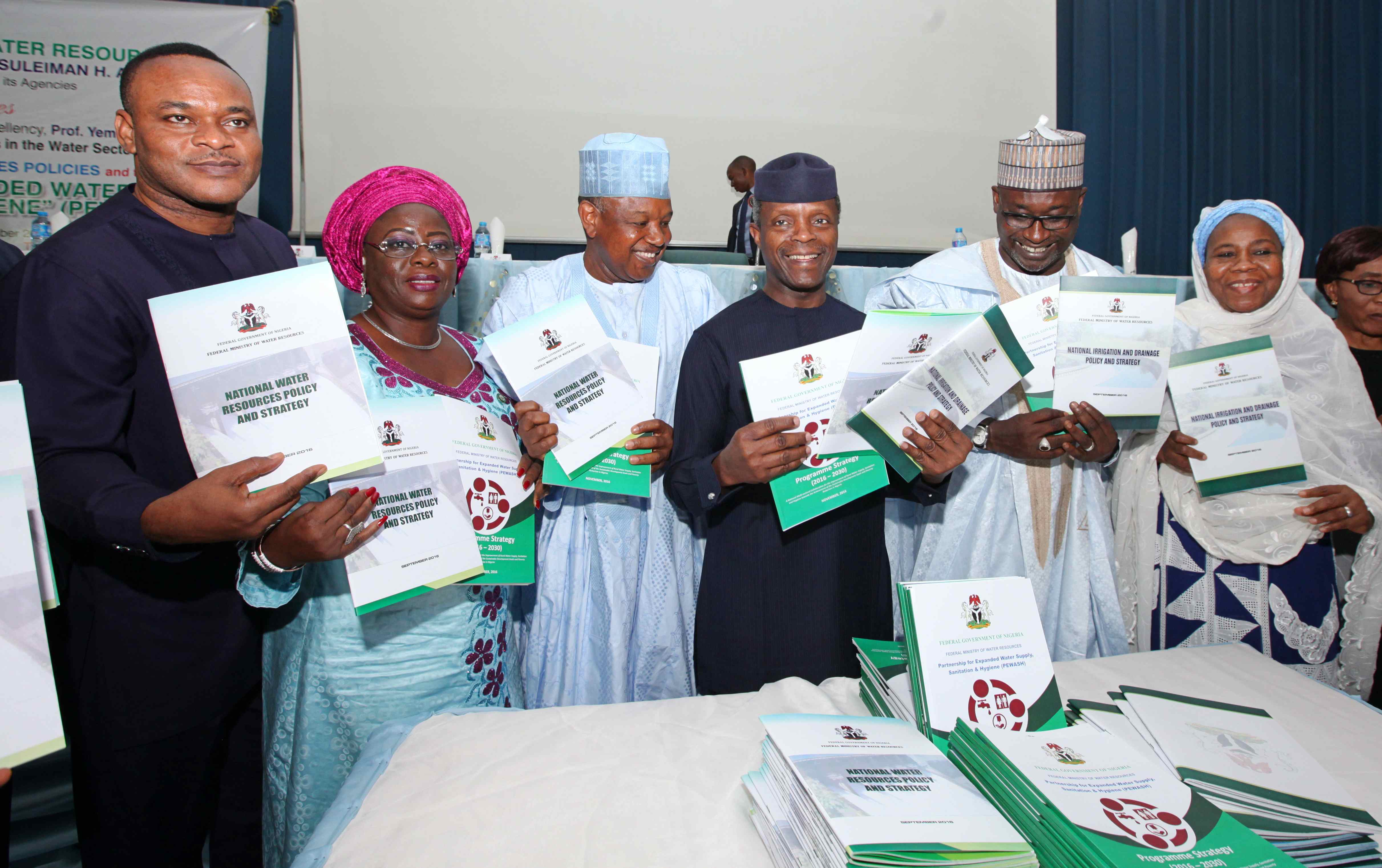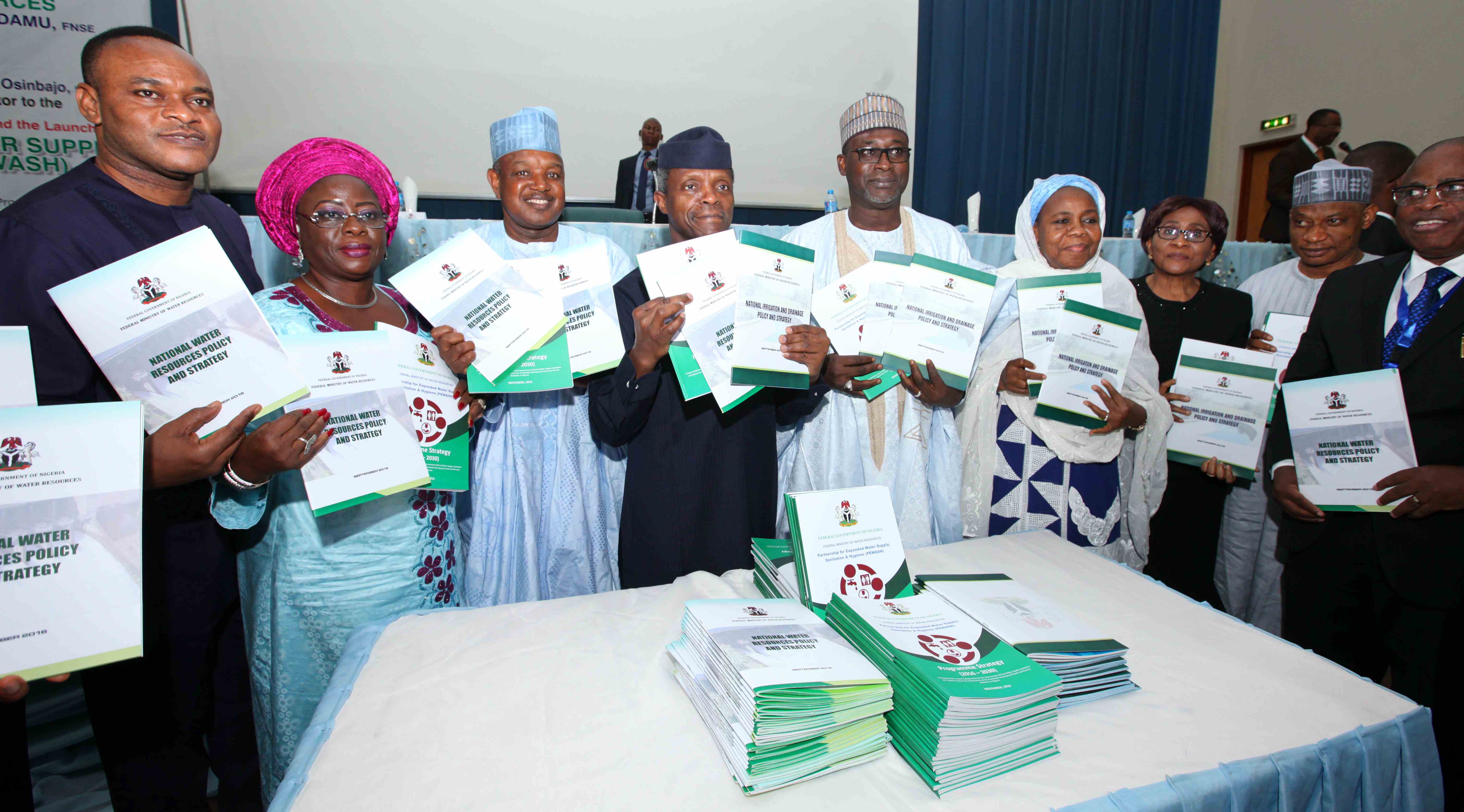Unveiling Of National Water Policies And Launching Of Partnership For Expanded Water Supply, Sanitation And Hygiene
BUHARI ADMINISTRATION ON COURSE TO ATTAIN INCREASED RURAL SUPPLY OF WATER AND BETTER SANITATION – SAYS VP
ADDRESS BY THE VICE PRESIDENT, PROF. YEMI OSINBAJO, SAN, GCON AT THE UNVEILING OF THE NATIONAL WATER POLICIES AND LAUNCHING OF THE PARTNERSHIP FOR EXPANDED WATER SUPPLY, SANITATION AND HYGIENE AT THE SHEHU MUSA YAR’ADUA CENTRE, ABUJA ON MONDAY NOVEMBER 7, 2016.
PROTOCOL
It gives me great pleasure to address this select community of professionals and stakeholders of the water sector, at this epoch-making event of the launch of the Partnership for Expanded Water Supply, Sanitation and Hygiene (PEWASH). It is indeed heart-warming that such an all-embracing initiative has been developed as a means of addressing the challenges being faced in the water supply and sanitation sub-sector, and to prepare a good foundation towards achieving Goal 6 of the Sustainable Development Goals (SDGs) which is to “Ensure Availability and Sustainable Management of Water and Sanitation for all’’ by the year 2030.
The fact that we all seem to agree that water is life and critical to human existence, it is amazing how lightly we take issues of water management. Excess water or insufficient water not properly managed is devastating to both man and environment. The problem is made more graphic by the fact that since the creation of man, the aggregate volume of water within the hydrosphere has substantially remained constant in spite of increasing population, which implies the per capita share is decreasing on a daily basis.
It is also a well-known fact that Nigeria did not achieve the targets of the Millennium Development Goals (MDGs) for water and sanitation. Some of the reasons adduced for this include primarily, the lack of effective coordination among stakeholders and the inability to harness the required funds.
Consequently, about 150,000 children under the age of 5 die annually from diarrhoea-related diseases that are mostly traceable to unsafe drinking water. The situation is even more depressing in the rural areas where polluted ponds and streams remain the only source of water for drinking and other household chores. This trend must change!
In Nigeria, successive governments, in collaboration with development partners, have contributed to efforts geared towards improving access to water supply and sanitation services, and successes have been recorded in a number of areas, with access to water supply presently at 69%, and sanitation at 29%.
This is still a far cry from what is needed. Indeed, within an ever-increasing population and a drive to self-sufficiency in food production, the demand for water supply and sanitation service will continue to increase thereby requiring an innovative and holistic approach towards closing the access gaps. The Ministry of Water Resources has concluded work on the National Water Resources Policy and the National Irrigation Policy and was recently approved by the Federal Executive Council.
By this, the ministry is provided with the overarching framework which will guide the activities of all stakeholders in the sector in the wake of our renewed focus on agriculture as a revenue earner and contributor to our GDP and importantly, the development of our irrigation infrastructure.
I am informed that PEWASH will provide a new collaborative and systematic approach to the achievement of an increased universal access to sustainable water supply and sanitation services involving all the relevant stakeholders from the beneficiary communities, local government areas, state governments, development partners, donor agencies, the organized private sector and the Federal Government.
It will also take cognizance of special groups such as the vulnerable and people living with disabilities with a well-structured framework for project delivery. It is expected that with the implementation of PEWASH, we hope to attain our targets of increased rural water supply and sanitation and health as well as make a positive impact on economic growth and human development.
I like to commend the Honourable Minister for Water Resources, Engr. Suleiman Adamu for his strong belief and practice of policy-driven initiative. It is clear that he strongly subscribes to the view that the way of ensuring sustainable attainment is in ensuring that they are based on a robust policy.
Let me also commend all development partners involved in this great initiative, for their commitments through the years. I commend the Permanent Secretary and members of the team at the Ministry of Water Resources for all the hard work that has gone into this so far.
I encourage all stakeholders especially the states and local governments to participate in this crucial initiative and commit to its success so that our common development goals as a nation will be achieved.
Distinguished ladies and gentlemen, it is my pleasure and singular honour to launch the Partnership for Expanded Water Supply, Sanitation and Hygiene (PEWASH) for smooth implementation to the glory of God and for the benefit of our people.
Thank you.
In Nigeria, successive governments, in collaboration with development partners, have contributed to efforts geared towards improving access to water supply and sanitation services, and successes have been recorded in a number of areas, with access to water supply presently at 69%, and sanitation at 29%.


